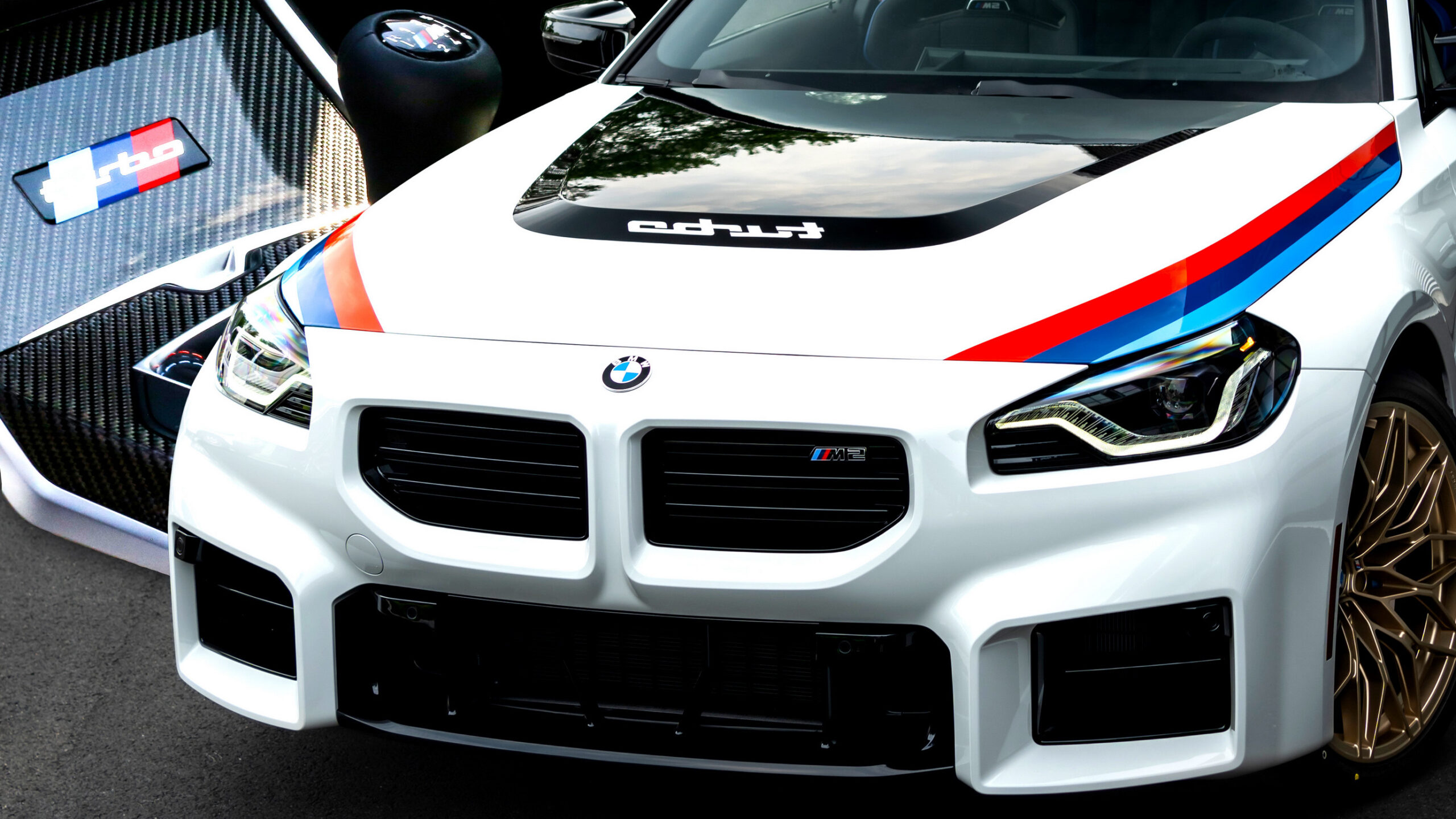Limited edition M2 Turbo Design Edition costs almost $15k more than base M2 and brings carbon roof and stripes, but no more power
BMW M is celebrating one of its earliest and most distinctive performance cars with a special edition. The 2026 M2 Turbo Design Edition mixes visual cues from the 1970s with technology from today and comes with a price that seems to be from three years in the future.
Related: BMW’s Most Driver-Focused M2 Drops The One Thing Real Drivers Care The Most
Because at $84,075 including the $1,175 destination fee, the new Turbo is almost $15,000 more expensive than a stock $69,375 M2, and even when you factor in the extras it comes with, that’s a hefty markup.
However, you are getting a limited edition car (how limited, BMW isn’t saying) and plenty of buyers are going to fall head-over-heels for a package inspired by the legendary 2002 Turbo launched in September 1973.
Stripes, Carbon, And Nostalgia
Every example comes finished in Alpine White, topped with a carbon roof. That roof is a $2,600 option on a regular M2, but this one is a little different because it features colored M stripes running front to back. You also get M stripes on the hood and trunk, which are hand-painted, helping to explain the price premium.
I can’t help thinking how much more epic it would have looked with hockey-stick side stripes like the original 02 had, but having the word ‘Turbo’ spelled out in reverse on the hood, as it was on the front spoiler of some original 02s to terrorize drivers looking in their rear-view mirrors, is a nice touch.
$84k is just the start
Be warned though, because a standard Turbo Design Edition won’t look quite like the one in the pictures. The gorgeous Matte Gold Bronze Style 1000M rims are an expensive $6,266 option – the stock M2’s black 930Ms are standard – and if you want to upgrade the ordinary Black Vernasca Leather sports seats for carbon buckets, that’ll cost you $4,500.
But you do get a M Performance carbon fiber rear spoiler, M Shadowline lights with adaptive LEDs, carbon interior trim, and a heated M Alcantara steering wheel, all of which would cost extra on a run-of-the-mill M2. Other now-standard features include a wireless phone charger and a head-up display, but overall, there’s got to be less than $6k of bonus kit onboard.
Same engine, mandatory manual
There are also no changes to the S58 3.0-liter turbocharged six-cylinder engine, which makes the same 473 hp (480 PS) and 406 lb-ft (550 Nm) as all manual M2s have done since the model was updated for 2025.
The good news though, is that it is available with a six-speed manual transmission. In fact, that’s the only transmission available, so if you don’t like shifting your own gears, you’ll have to settle for a production-line M2 and maybe dress it up with some of the same bits from the M Performance catalog.
Performance, as you’d expect, is unchanged. Sixty (100 km/h) is done and dusted in 4.1 seconds, and the limiter intervenes to stop the fun at 155 mph (250 kmh), unless you’ve splashed $2,500 on the optional M Driver’s Package. That raises the limiter to 177 mph (285 kmh) and also gets you a day’s high-performance driving course at a BMW Performance Center.
M2 Turbo or M2 CS?
Is the M2 Turbo Design Edition worth $15k more than an M2? We’ll let you make your own mind up about that, though it’s not the only pertinent question here. Because for just under $15k on top of that, you could get into the new M2 CS.
At $99,775, or almost $30k over a base M2, that really is into silly money territory, but the CS weighs 97 lbs (44 kg) less and gains an upgraded 3.0-liter S58 inline-six engine producing 523 hp (530 PS) and 479 lb-ft (649 Nm) of torque.
Throw in the chassis upgrades, a killer ducktail rear spoiler, and standard M Carbon buckets, and the M2 CS looks damn appealing, despite the price. What could be the dealbreaker for some people though, is the fact that the CS is auto-only. Which M2 would get your cash?
Google News
MSN Start
Chris is a seasoned automotive journalist with over two decades of experience. He has worked… Read full bio











